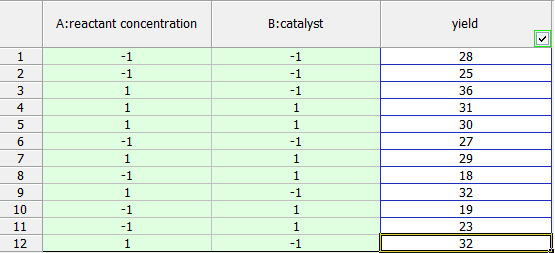Two Level Factorial Design: Difference between revisions
Jump to navigation
Jump to search
No edit summary |
No edit summary |
||
| Line 1: | Line 1: | ||
{{Reference Example|{{Banner DOE Reference Examples}}}} | {{Reference Example|{{Banner DOE Reference Examples}}}} | ||
This example validates the calculation of the two level factorial design. | This example validates the calculation of the two level factorial design in DOE++. | ||
{{Reference_Example_Heading1}} | {{Reference_Example_Heading1}} | ||
Revision as of 15:35, 29 July 2015
New format available! This reference is now available in a new format that offers faster page load, improved display for calculations and images and more targeted search.
As of January 2024, this Reliawiki page will not continue to be updated. Please update all links and bookmarks to the latest references at DOE examples and DOE reference examples.


